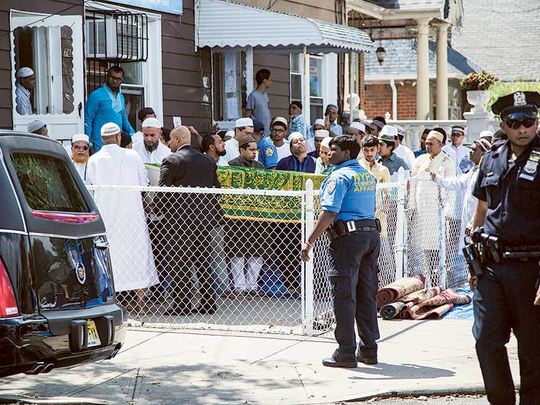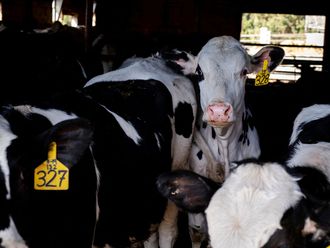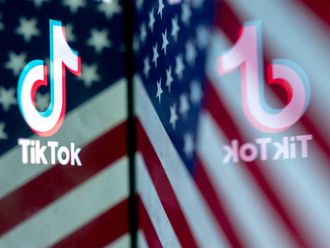
Washington: Hate crimes against American Muslims have soared to their highest levels since the aftermath of the September 11, 2001, attacks, according to data compiled by researchers, an increase apparently fuelled by terrorist attacks in the United States and abroad and by divisive language on the campaign trail.
The trend has alarmed hate crime scholars and law-enforcement officials, who have documented hundreds of attacks — including arsons at mosques, assaults, shootings and threats of violence — since the beginning of 2015.
While the most current hate crime statistics from the FBI are not expected until November, new data from researchers at California State University, San Bernardino, found that hate crimes against American Muslims were up 78 per cent over the course of 2015. Attacks on those perceived as Arab rose even more sharply.
Police and media reports in recent months have indicated a continued flow of attacks, often against victims wearing traditional Muslim garb or seen as Middle Eastern.
Some scholars believe that the violent backlash against American Muslims is driven not only by the string of terrorist attacks in Europe and the United States that began early last year, but also by the political vitriol from candidates like Donald Trump, who has called for a ban on immigration by Muslims and a national registry of Muslims in the United States.
“We’re seeing these stereotypes and derogative statements become part of the political discourse,” said Brian Levin, director of the Center for the Study of Hate and Extremism at the San Bernardino campus. “The bottom line is we’re talking about a significant increase in these types of hate crimes.”
He said the frequency of anti-Muslim violence appeared to have increased immediately after some of Trump’s most incendiary comments.
The latest major episode of anti-Muslim violence came last weekend, when an arsonist on a motorcycle started a fire that engulfed the Islamic Center of Fort Pierce, Florida, where Omar Mateen — the gunman in the June massacre at the Pulse nightclub in Orlando — had sometimes prayed.
Police, who called the attack “a terrible tragedy” for the community, arrested a local man who had criticised Islam in social media postings.
The arson, along with an earlier assault on a congregant outside the mosque and other episodes there, has left worshippers scared, said Mohammad Malik, 43, a businessman who has attended the mosque for nearly a decade.
“There is a lot of negative rhetoric,” he said. “The negative rhetoric is causing the hate, and in turn the hate is causing the violent acts.”
The new study from Levin’s non-partisan group, based on official police reports in 20 states, estimated that there were about 260 hate crimes against Muslims nationwide in 2015.
That was the most since the record 481 documented hate crimes against Muslims in2001, when the September 11 attacks set off waves of crimes targeting Muslims and Middle Easterners, Levin said. The huge increase last year was also the biggest annual rise since 2001, he said.
The rise came even as hate crimes against almost all other groups — including blacks, Hispanics, Jews, gays and whites — either declined or increased only slightly, his study found. One exception was hate crimes against transgender people, which rose about 40 per cent.
An advance copy of the study was provided to The New York Times.
The statistics almost certainly understate the extent of the problem, researchers say, because victims are often reluctant to report attacks for fear of inflaming community tensions, and because it is sometimes difficult for investigators to establish that religious, ethnic or racial hatred was a cause.
In the killing last year of three Muslim students in Chapel Hill, North Carolina, for instance, authorities did not bring hate crime charges against a neighbour who is charged with murdering them, despite calls from Muslims who said there were religious overtones to the violence. Police said that a parking dispute, not bigotry, may have led to the killings.
Sometimes, the evidence is more clear-cut.
“I hate ISLAM!” a former Marine named Ted Hakey Jr. wrote to a friend on Facebook after November’s terrorist attacks in Paris. Hours later, in a drunken rampage, he fired a high-powered rifle four times into the mosque next door to his Connecticut home.
Last month, an apologetic Hakey began a six-month prison sentence after pleading guilty to a hate crime charge.
In Brooklyn, two women out walking their children in strollers were attacked this month, police said, by a woman who screamed anti-Muslim obscenities and tried to rip off their traditional veils. And in Queens, a man was beaten in April by three strangers who shouted “ISIS, ISIS.”
In Minneapolis, a man shouting obscenities about Islam shot two Muslim men in traditional religious garb in June, authorities said.
In St. Louis, a man was arrested in February after police said he pointed a gun at a Muslim family shopping on his block and told them they “all should die”.
Last month, an imam in Queens and his assistant were shot and killed execution-style on the sidewalk. Authorities have charged a 35-year-old man in the attack but have not determined a motive or whether it should be treated as a hate crime.
The increase in reports of apparent hate crimes has worried US Justice Department officials.
“We saw it after 9/11, and we continue to see an uptick in allegations of hate-related incidents today following the tragic events over the past year,” said Vanita Gupta, who leads the Justice Department’s civil rights division.
A number of experts in hate crimes said they were concerned that Trump’s vitriol may have legitimised threatening or even violent conduct by a fringe of his supporters.
In a few cases, people accused of hate crimes against Muslims and others have even cited Trump.
Police here in Washington released a videotape in May of a woman who reportedly poured liquid on a Muslim woman after berating Islam and declaring that she was going to vote for Trump so he could “send you all back where you came from.”
Trump has said he is not responsible for any violence by his supporters.
“They’re not angry about something I’m saying,” he said on “Meet the Press” in March. “I’m just a messenger. The people are angry about the fact that, for 12 years, the workers in this country haven’t had a pay increase.”
James Nolan, a former FBI crime analyst who teaches about hate crimes at West Virginia University, said the data seemed to show “a real spike” in hate crimes against American Muslims, caused in part by candidates’ “raising the spectre that radical Islam is at our doorstep.”
Mark Potok, a senior fellow at the Southern Poverty Law Center, which monitors hate groups and extremism, went further.
“I don’t have the slightest doubt that Trump’s campaign rhetoric has played a big part” in the rising attacks, he said.












